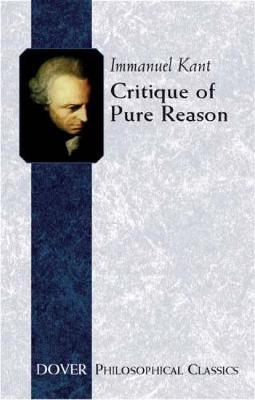Critique of Pure Reason

Critique of Pure Reason
In his monumental Critique of Pure Reason, German philosopher Immanuel Kant (1724-1804) argues that human knowledge is limited by the capacity for perception. He attempts a logical designation of two varieties of knowledge: a posteriori, the knowledge acquired through experience; and a priori, knowledge not derived through experience. Kant maintains that the most practical forms of human knowledge employ the a priori judgments that are possible only when the mind determines the conditions of its own experience. This accurate translation by J. M. Meiklejohn offers a simple and direct rendering of Kant's work that is suitable for readers at all levels.
PRP: 154.69 Lei
Acesta este Prețul Recomandat de Producător. Prețul de vânzare al produsului este afișat mai jos.
139.22Lei
139.22Lei
154.69 LeiLivrare in 2-4 saptamani
Descrierea produsului
In his monumental Critique of Pure Reason, German philosopher Immanuel Kant (1724-1804) argues that human knowledge is limited by the capacity for perception. He attempts a logical designation of two varieties of knowledge: a posteriori, the knowledge acquired through experience; and a priori, knowledge not derived through experience. Kant maintains that the most practical forms of human knowledge employ the a priori judgments that are possible only when the mind determines the conditions of its own experience. This accurate translation by J. M. Meiklejohn offers a simple and direct rendering of Kant's work that is suitable for readers at all levels.
Detaliile produsului










